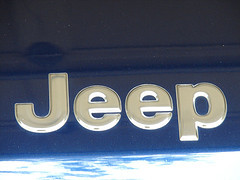Chrysler Finally Agrees To Recall 2.7 Million Jeeps, Insists Vehicles Are Safe
Earlier this month Chrysler responded with a big fat “No” to the National Highway Traffic Safety Administration’s request that it formally recall 2.7 million older model Jeeps, over regulator concerns that the vehicles could catch on fire when hit from behind. Today the car company announced that it’s relenting, and will in fact, institute the recall the NHTSA wanted.
Without going into any details of what exactly the company discussed with the NHTSA, Chrysler said today that it had “resolved its difference” with the agencies and will reinforce the rear-mounted fuel tank in certain Jeep SUVS.
In a statement Chrysler says:
“As a result of the agreement, Chrysler Group will conduct a voluntary campaign with respect to the vehicles in question that, in addition to a visual inspection of the vehicle will, if necessary, provide an upgrade to the rear structure of the vehicle to better manage crash forces in low-speed impacts.”
At issue are Jeep Grand Cherokees made between 1993 and 2004 as well as Jeep Liberties from 2002 to 2007.
But despite the fact that the NHTSA says the cars are defective, Chrysler maintains that its vehicles are safe.
“Chrysler Group’s analysis of the data confirms that these vehicles are not defective and are among the safest in the peer group,” the company said in its statement. “Nonetheless, Chrysler Group recognizes that this matter has raised concerns for its customers and wants to take further steps, in coordination with NHTSA, to provide additional measures to supplement the safety of its vehicles.”
It’s probably a good call on Chrysler’s part to agree with the voluntary recall, as its customers might have otherwise lost trust in the company for refusing to cooperate with the NHTSA.
Chrysler reaches agreement with NHTSA, issues recall for 2.7 million Jeep SUVs [Detroit Free Press]
Want more consumer news? Visit our parent organization, Consumer Reports, for the latest on scams, recalls, and other consumer issues.


